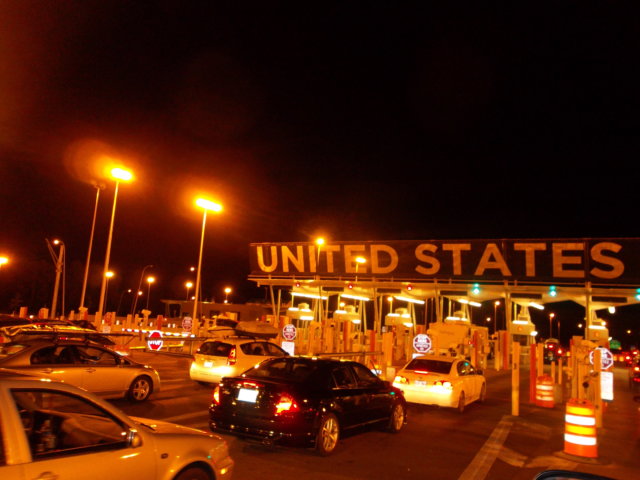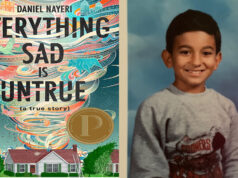When I ran for the Oklahoma State Senate in 2010, one of the big issues in the campaign was illegal immigration. My opponent in the run-off that year (who is now awaiting sentencing after pleading guilty to a federal child sex-trafficking charge), was pushing for stronger state legislation that would have enacted more severe penalties on undocumented workers and anyone who employed them.
One of my opponent’s backers, another former legislator who was convicted of bribery and corruption, was the principle author of HB 1804, passed in 2007, which prevented undocumented workers from obtaining government IDs or receiving government benefits. It also made it a felony to knowingly transport, employ or house undocumented immigrants. At the time, he was pushing for even stronger legislation, and my opponent was using this as his main campaign issue.
It was during this run-off that my own views regarding immigration began to change. As a conservative Republican at the time, I also was concerned about the impact of illegal immigration. While the racial overtones of my opponent’s message were increasingly disturbing to me, voters in this southwest Oklahoma City senate district were increasingly responding to calls for cracking down on illegal immigration in our state. Ultimately, my opponent won largely on that issue.
Forthcoming, multi-part commentary to detail changing stance on immigration
Since that campaign, I have seriously reconsidered my position on immigration. Three important influences have shaped my thoughts on the proper approach to immigration policy over the last decade. One was the Declaration of Independence, another was the teachings of the New Testament, and the third was my study of economics.
This multi-part commentary will trace how each of these influences has shaped my perspective on this increasingly divisive issue. The purpose of this series is not to label those who have a different perspective than mine as bigots or racists (terms that get thrown around much too loosely in our current discourse) but to share my personal migration on the immigration issue in hopes that it will foster more serious and genuine dialogue than what we generally see and hear.
Part one: the Declaration of Independence
This first part will examine the influence my re-examination of the Declaration of Independence has had on my thinking regarding immigration. Two passages from the Declaration are relevant to this issue. The first is quite well-known and comes from the second paragraph in the document:
We hold these Truths to be self-evident, that all Men are created equal, that they are endowed, by their Creator, with certain unalienable Rights, that among these are Life, Liberty, and the Pursuit of Happiness. – That to secure these Rights, Governments are instituted among men, deriving their just Powers from the Consent of the Governed…
This passage asserts that the rights to freedom and to pursue happiness are unalienable (cannot be separated from the individual) and are self-evident (clearly identifiable) truths. Furthermore, it states that the purpose of government is to secure (protect, ensure, nurture) these rights. It is important to note there are no qualifications or caveats on this. It’s not limited to just Americans nor is it limited to a specific race or geographical location. Each individual equally possesses these rights.
A second passage in the Declaration makes it clear the writers’ viewed the ability to migrate to other lands as an unalienable right. This passage charges King George III with actively preventing the “Population of these states” by hindering immigration to the country.
In fact, open immigration was the policy in the United States until the first real bout of anti-immigrant fever hit the country and the Chinese Exclusion Act was passed in 1882. This act, however, and subsequent attempts to restrict immigration into the country should be viewed as contrary to the Declaration’s principles and inconsistent with them.
Consider the context of the Declaration
American citizens too often read the Declaration in light of their current experiences, rather than the experience of those who wrote it. In 1776, many “Americans” were recent immigrants. They considered the right to flee tyranny, poverty and violence an “unalienable” right. National boundaries and political borders were not considered legitimate barriers for preventing individuals and families from pursuing happiness wherever they believed they could find it.
The Declaration is unequivocal in its pronouncement that individuals have an unalienable right to pursue happiness globally – not just within the bounds of a political jurisdiction in which they are born. This belief was so generally accepted that it formed the basis of immigration policy in the U.S. for its first century under the Constitution.
To deny peaceful immigrants is to reject the Declaration
If we consider the principles laid out in our foundational document as still true, then we should turn away from attempts to restrict access to our country and begin to once again welcome all those who seek a better life in what we proudly (if sometimes mistakenly) refer to as the “land of the free.”
Denying those who wish to peaceably come to our country the ability to do so is a rejection of the principles laid out in the Declaration of Independence. It concerns me that we have apparently become comfortable with that rejection.
(Editor’s note: The second and third parts of this commentary series will be published subsequently.)























